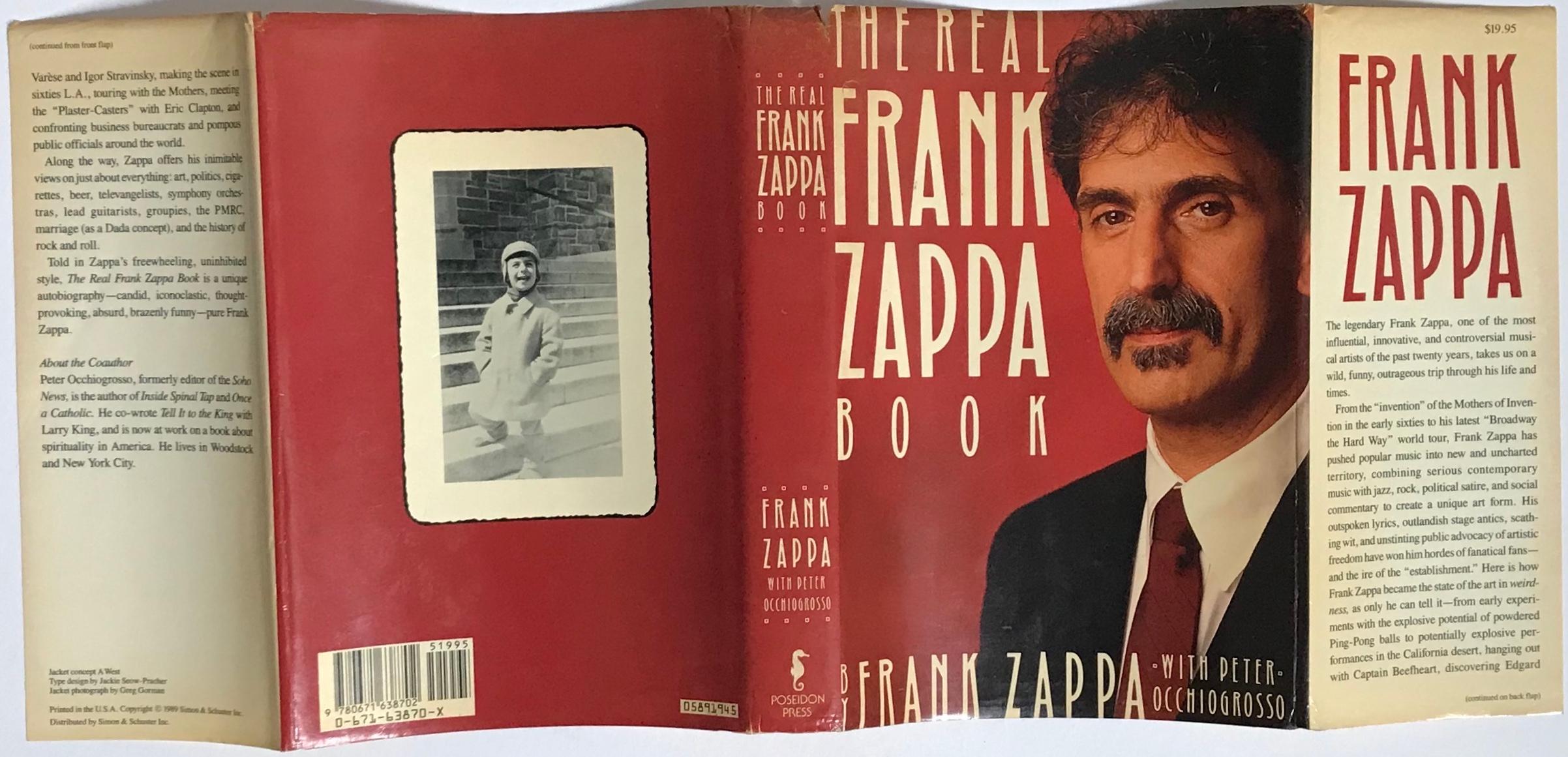


Music was primarily sold on physical media. Not better or worse but very seriously different. Reading TRFZB took me back to a time (it was first published in 1989) when things were different. At least in football they get to watch more than two teams compete. Never mind that politics has descended to a kind of organized sport with a big, dumb Superbowl every four years. Frankly (HA HA HA HA… sorry, couldn’t help it), I think Zappa was the exact right combination of outside the box thinker and common sense genius that it would take to be a truly positive force in the world of politics, though associating with the slime typically found in those venues would likely have driven him insane or worse. TRFZB is part autobiography and part philosophical exploration, the exploration being of Zappa’s mind in the form of theories, beliefs and ideas. I attribute this to three things Zappa had an interesting life, he had interesting things to say and he was able to talk about things in an interesting manner. I started paging through The Real Frank Zappa Book in an effort to generate band name ideas and ended up reading the entire thing cover to cover. You can pick up (or leave) his stream of consciousness at any point. Read the book if you like Zappa’s music and/or satire, but feel free to skip sections you’re not enjoying. The chapter entitled "Failures," about Zappa's ideas and projects that weren’t realized, shows some innovative thinking and conceptualizing, far ahead of his era. I, for example, enjoyed the chapter on Church and State very much. Still, some of the rants might be of interest, depending on your point of view. At another point he asks himself “Am I sexist?” and after a fashion answers that with “Those songs are about stupid men.” (Huh? How did we get there?) This is definitely stream of consciousness writing, complete with generous and inappropriate use of italics, bold, CAPS, and underlines, which becomes quite annoying after the first 50 pages. Zappa enjoys his wordplay and excels at it. The chapter that is largely transcriptions of his defense before the British high court of justice reveals much about how Zappa can turn a phrase and redirect a conversation, changing something that obviously indicates sex to something that is ambiguous-which is humorous and fascinating. I recommend reading Barry Miles’ “Frank Zappa” first, to break down some of the myths in the autobiography. Several of Zappa’s associates have noted that this account is largely fictionalized, tending to reflect Zappa as a more just and generous character than he actually was. As the book progresses, though, it becomes more of a series of rants against his various critics and pet peeves.


Zappa’s humorous look at his early years and musical experiences is entertaining and somewhat informative. I greatly enjoyed the first part of this book.


 0 kommentar(er)
0 kommentar(er)
